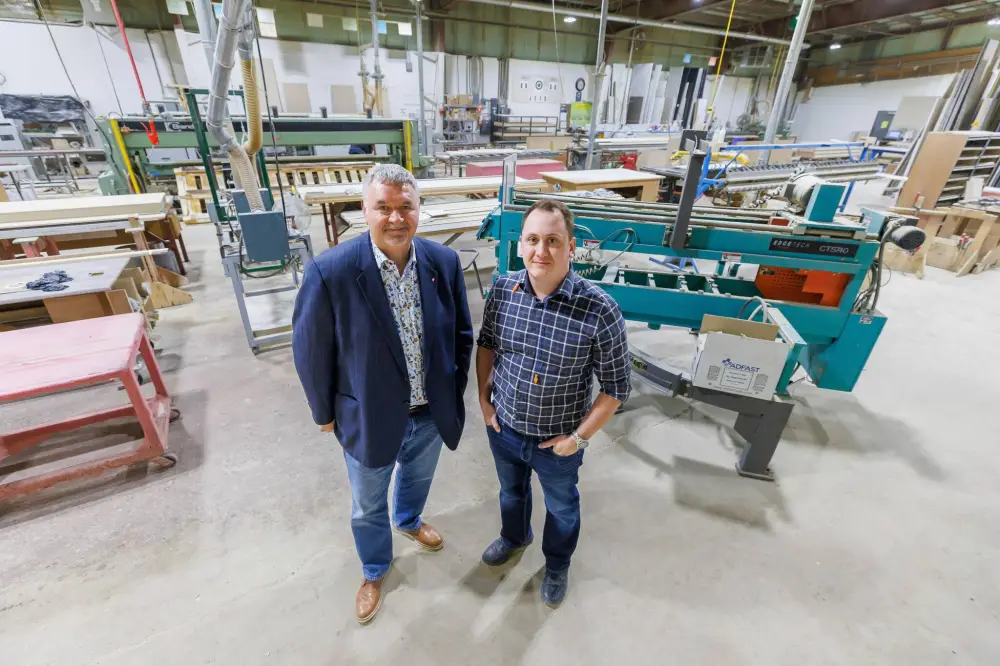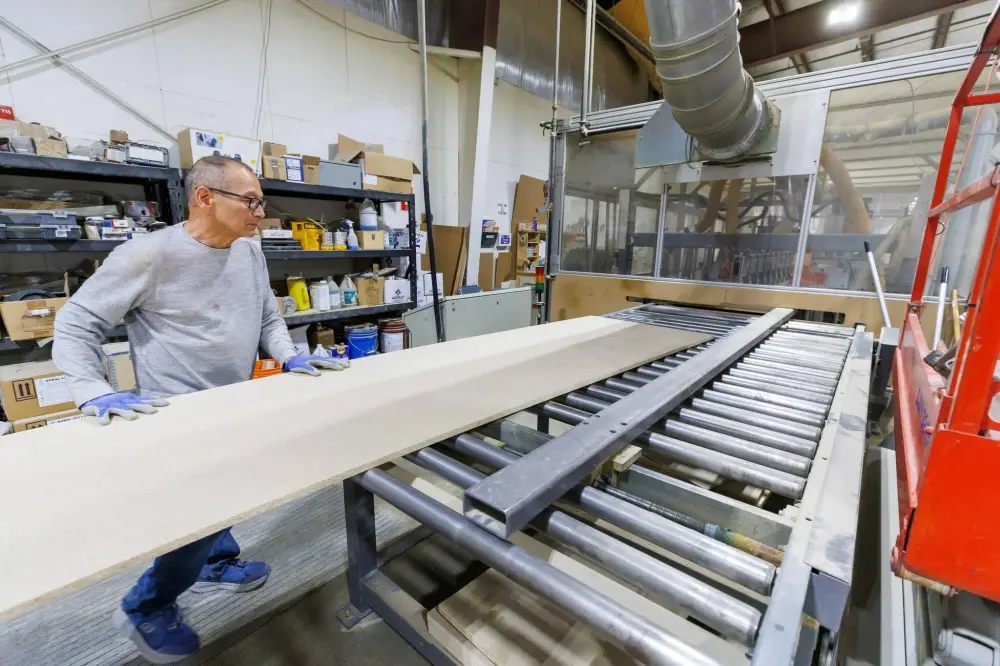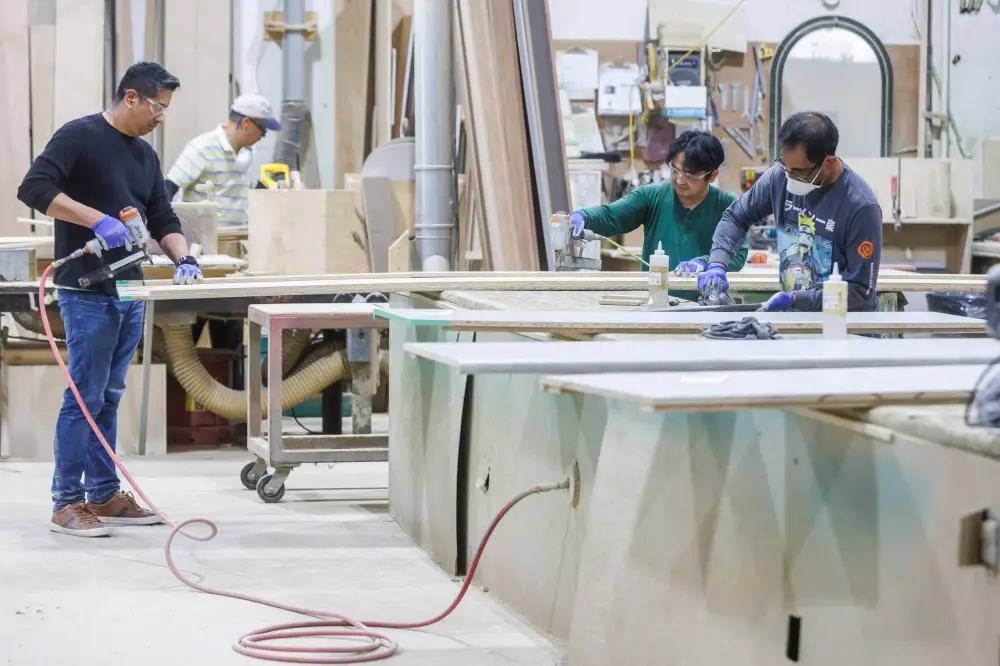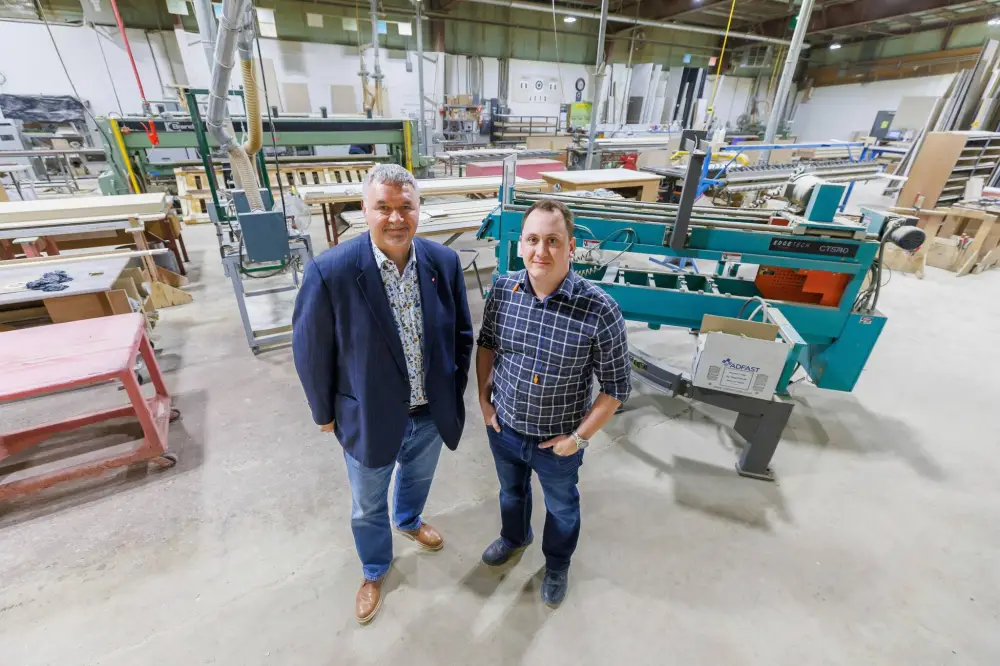Positive reviews get attention at Floform Countertops, but negative feedback might get even more.
The Winnipeg company has received around 500 Google reviews with an average of 4.8 out of five stars. Words like “fabulous,” “professional,” “courteous” and “fantastic” mean a lot to Floform employees, but if a customer has had a bad experience, they want to get to the bottom of it.
Such was the case one Thursday afternoon late last month, when three staff members — a branch manager, a retail sales manager and the company’s marketing manager — were working together to respond to a consumer who had left a one-star review online.
It’s part of majority owner and chief executive officer Ted Sherritt’s vision to provide customers with the best countertop purchasing experience available. “They spent money — they trusted you and wrote you a cheque — so make them happy,” he says. “Just do what’s right.”
Sherritt learned that lesson early in his tenure with the company.
Today, Floform is one of the largest countertop fabricators in North America, with 17 showrooms and eight fabrication facilities across Western Canada and the northwest United States. But when Sherritt got involved with the company, it was close to going bankrupt.
Harry, Frank and John Dyck, three brothers from Winkler, established Floform in Winnipeg in 1961.
They were cabinetmakers by trade and saw an opportunity to move into manufacturing post-formed laminate countertops (plastic laminate sheets bound to particle board substrate using heat and pressure).
The company flourished, including expansions into Saskatchewan and Alberta, until the late 1980s, when, unbeknownst to the brothers, the glue manufacturer switched the components used in the glue from natural rubber to more environmentally friendly synthetic rubber.
The glue ultimately proved to be defective, leaving countertops de-laminated in three months to a few years after installation.
Sherritt says it was a “catastrophic failure” for a company that, at the time, was manufacturing 160 kilometres of countertops annually. The Dycks wanted to honour the warranties on their products. Between 1989 and 1997, Floform’s service technicians knocked on 30,000 doors to repair or replace the affected countertops.
At the time, Sherritt, a certified professional accountant and chartered business valuator, worked for a firm Floform had hired to provide financial projections.

“The bank, lawyers — everybody said, ‘Just go bankrupt, start again, walk away from all that,’” Sherritt recalls. “And they said, ‘No. We sold it, we’re going to fix it.’ So that’s what they did.”
Harry Dyck had left Floform by that point, and Sherritt approached the remaining brothers about buying into the company. He figured the Dycks needed an accountant and an influx of cash. The brothers agreed and sold him 20 per cent of the business in 1995.
“It was a great business lesson that I learned early when I got here … We never quit until the customer is satisfied,” Sherritt says.
One brother retired in 1997 and the other in 2000, at which point Sherritt became president and CEO.
Today, Floform offers countertops in a variety of brands and materials, including quartz, porcelain, laminate, solid surface and wood butcher block.
The company employs 900 people and has around a million square feet of manufacturing facilities. Its annual gross income is around $200 million, two-thirds of which comes from the United States.
In the last 30 years, the company has made 12 acquisitions and six expansions with “more to come,” Sherritt says.
“We’ve got a few more acquisitions on the books right now because I’m an accountant,” he says. “I’m not a countertop fabricator — I’m a business valuator that likes to grow things.”
Since 1974, Floform’s head office has been located on Hamelin Street in the Chevrier neighbourhood. About 80 people work in the 40,000-square-foot manufacturing facility, with another 15 employees in an office space and showroom next door.

The company spent $2 million over the last two years building the office space and showroom. It celebrated the grand opening of the latter on May 29.
The idea behind the new showroom is to immerse customers in “the countertop experience,” says Don Rempel, branch manager. A certified design professional is available to help guide customers through the options available to them, “from good to better to best.”
“We want to be, without a shadow of a doubt, considered the best place to come to learn about the different types (of countertops and) the different companies — including our own — that you can work with,” Rempel says. “We’re really hoping to create a really good, immersive, interactive experience for people of any type.”
Most people who walk through the doors are buying a countertop for the first time in their lives, he adds, and when they’re spending $5,000 or more, they want to be confident about their decision.
A kitchen is the main hub in any home, Sherritt says, and countertops are a big part of that.
“It’s where your kids sit and do homework (and) it’s where you drink wine at the end of the day,” he says. “Not everybody touches your cabinets or opens the door of your fridge, but everybody touches your countertop … It is the most valuable appliance you’ve got in your house today.”
Floform will mark its 65th anniversary in 2026.
This year, Sherritt has a few milestones of his own to celebrate: 30 years ago, he married his wife, Marnie; quit his job; bought into Floform; and started a small tent rental business in the Pembina Valley region of southern Manitoba (which he’s since sold).
Sherritt, who was born and raised in Souris, says his lower-middle-class upbringing has fuelled his entrepreneurism. He enjoys working hard, but he also enjoys the free time being a successful business owner affords him.

“I do truly believe in the Canadian dream — that if you work hard, you can succeed,” he says. “Just keep working.”
With his success, Sherritt feels a duty to pursue charitable endeavours. Floform regularly donates countertops to Habitat for Humanity build sites, and Sherritt and his wife are major donors to United Way Winnipeg.
At 61, Sherritt figures he’ll sell the business in the next three to 10 years. Until then, he’s taking pleasure in his work — and is confident Floform will be around decades after he’s left the company.
“I do really enjoy the people I work with. We do really have a lot of great people and it’s been fun,” he says. “We’ve been here 64 years, and we’ll be here another 64 years to keep doing it.”
aa*******@**********mb.ca
